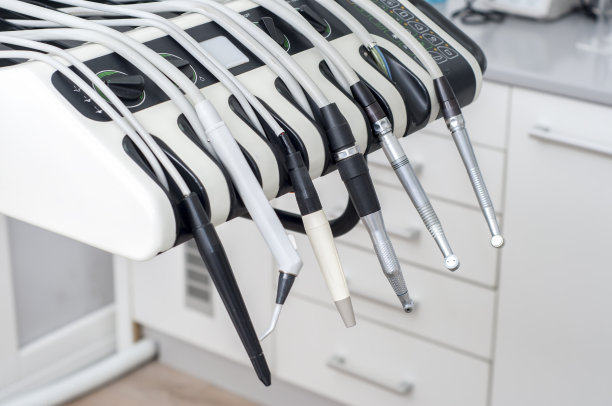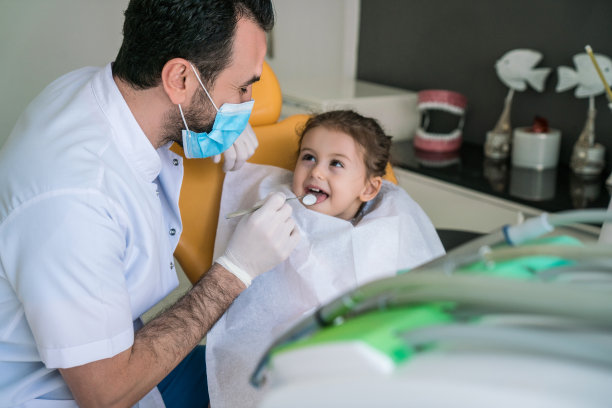Summary: The extraction of a tooth, while often necessary, can be a daunting process for many individuals. This article delves into the significance of professional dental care, emphasizing the safety and effectiveness that trained dental practitioners bring to tooth extraction. By exploring the essential components such as expertise and training, advanced techniques and technology, post-extraction care, and the role of patient comfort, we clarify why professional assistance is vital. Understanding the importance of these factors can help individuals make informed decisions regarding their dental health and ensure a smoother extraction process.
1. Expertise and Training of Dental Professionals

One primary reason to seek professional dental care when needing a tooth extraction is the expertise and training that dental professionals possess. Dentists undergo extensive education, which includes not only the theory of dentistry practices but also hands-on experience in clinical settings. This thorough training equips them with the skills necessary to perform complex procedures with precision.
Moreover, dentists receive continuous education to stay updated on the latest advancements in dental technology and techniques. This ongoing professional development means they are well-prepared to handle various extraction scenarios, from simple extractions to more complicated surgical removals.
In addition to their formal education, dentists also develop a keen sense of judgment through years of practice. Their ability to assess the specific conditions of each patients dental health ensures that they can determine the best approach for performing an extraction, taking into account any underlying issues that may complicate the procedure.
2. Advanced Techniques and Technology Utilized
The use of advanced techniques and technology is another critical aspect of professional dental care when it comes to tooth extraction. Modern dental offices are equipped with state-of-the-art technology that greatly enhances the safety and effectiveness of extractions. For example, digital imaging systems provide detailed views of the root structure, enabling dentists to plan the extraction process meticulously.
Additionally, sedation methods, including local anesthesia and sedation dentistry, are commonly used by dental professionals to ensure patients experience minimal discomfort during the procedure. This not only enhances patient comfort but also allows the dentist to work more efficiently.
Furthermore, advancements such as laser dentistry have revolutionized tooth extraction. Lasers reduce the need for incisions and can result in less bleeding and swelling, providing a gentler alternative that promotes quicker healing. By employing these modern methods, dental professionals can carry out tooth extractions with a level of care and effectiveness that is difficult to replicate in non-professional settings.
3. Importance of Post-Extraction Care and Follow-Up
Post-extraction care is an essential element of the dental care process, which underscores the importance of seeking professional help. After a tooth is extracted, a dentist provides specific instructions on how to care for the extraction site to promote healing and prevent complications. This guidance is crucial, as improper care can lead to issues such as dry socket, excessive bleeding, or infection.
Dentists monitor recovery and are available to address any concerns that may arise after the procedure. Professional dental care includes follow-up appointments, which can help ensure that the healing process proceeds without complications. This attentive aftercare is vital for minimizing discomfort and ensuring a successful recovery.
Moreover, a dental professional can assess whether other dental work is needed post-extraction, such as implants or bridges, to restore functionality and aesthetics. Their knowledge not only aids in the smooth recovery from the extraction but also contributes to long-term oral health planning.
4. Enhancing Patient Comfort and Reducing Anxiety
A significant part of professional dental care revolves around enhancing patient comfort and minimizing anxiety, especially during a potentially traumatic event like a tooth extraction. Dental professionals are trained to recognize signs of anxiety in their patients and employ techniques that help create a calming environment.
Dental offices are typically equipped with amenities designed to soothe patients, including comfortable seating, entertainment options, and even aromatherapy. Additionally, the compassionate approach of dental professionals plays a crucial role in alleviating fears associated with extractions.
Through thorough consultations, dentists can also provide reassurance and detailed explanations about the extraction process, helping to demystify the procedure. This communication fosters trust and comfort, making the experience less intimidating for patients. When patients feel cared for and understood, their overall experience during tooth extraction improves significantly.
Summary:
In summary, professional dental care plays a critical role in safely and effectively addressing the need for tooth extractions. With expertise and training, advanced techniques and technology, attentive post-extraction care, and a focus on patient comfort, dental professionals offer a level of care that ensures a smoother, safer experience. It is vital for patients to recognize the importance of consulting with a qualified dentist during this process to safeguard their oral health.
This article is compiled by Vickong Dental and the content is for reference only
Vickong Dental
Vickong Dental is a large medical group established in Hong Kong in 2008 by professors from well-known medical universities in Guangdong and Hong Kong, as well as medical doctors from key national '985' universities (including Master's supervisors and senior professors). The chain of branches brings together expert dentists with PhDs and Master's degrees from Hong Kong and Mainland China, committed to providing high-quality dental treatment.
"Vickong Dental Practices the University Motto of 'Healing and Serving Society,' with a Stable Operation for Sixteen Years. It Has Been honored with Hong Kong Enterprise Leaders's Choice,' and is a Global Trusted Implant Center for the Nobel Implant System. Recommended by Hong Kong Metro Broadcast and Guangdong Television, it Serves Customers from Over Thirty Countries and Regions, Gaining the Trust and Favor of Citizens from the Guangdong-Hong Kong-Macau Greater Bay Area and Surrounding Cities.

Thousands of customers' unanimous praise
The most recognized and highly recommended dental service by customers in the Guangdong-Hong Kong-Macau Greater Bay Area
We Ensure You Receive Detailed Care and Attention Here
Hong Kong standards, Shenzhen prices, Your Trusted English-speaking dentists

Vickong Dental Medical-Grade Instrument Disinfection Process
Vickong Dental Medical-Grade Instrument Disinfection Process

Vickong Dental Chain: A Warm and Comfortable Environment for Treatment






Appointment Hours

Q&A
Why choose Vickong Dental?
Vickong Dental practices the university motto 「Medicine to Benefit Society」, with each branch bringing together highly qualified dentists with doctoral and master’s degrees from Hong Kong and the Mainland, and has maintained seventeen years of steady operation。Recipient of 「2024 Hong Kong Enterprise Leaders Brand」, 「2025 Hong Kong Enterprise Leaders Brand」, a Nobel Biocare Global Trusted Implant Center, and a brand recommended by Metro Radio Hong Kong and Guangdong TV。
To date, we have served customers from more than thirty countries and regions,earning exceptionally high word-of-mouth recognition and trusted recommendations from residents across the Guangdong-Hong Kong-Macao Greater Bay Area and surrounding cities
We have eight major branches in Zhuhai、Shenzhen,and a consultation and service assurance center in Hong Kong,so you can book a free consultation at any time for any questions,which is very reassuring.
If I do not accept the quotation after the CT scan, will I be charged??
No! As long as the actual treatment has not started, you will not be charged any fees.
Will there be any additional charges during the treatment process?
No, there won’t be any additional charges. Before treatment begins, we will clearly explain the treatment plan and its corresponding fees. Only after the patient agrees and signs the consent form will we proceed with the dental service.
Can I pay in Hong Kong dollars?
Yes. Vickong Dental accepts payment in Hong Kong dollars. The amount will be converted based on the exchange rate of the day, and the applicable rate will be clearly communicated to you in advance.
Can I reschedule my appointment at any time?
Yes. Please contact us via **WeChat** or **WhatsApp** as early as possible, providing your original appointment time and details, along with your preferred new date and time slot for rescheduling.













